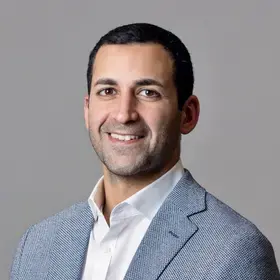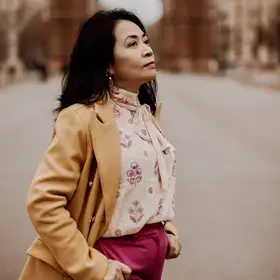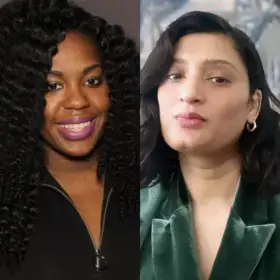Donna Bulseco wanted to take her career in a new direction. A longtime writer and editor for lifestyle magazines including Women's Wear Daily, Self, Good Housekeeping, and, most recently, InStyle, she longed to return to studying and teaching literature. In 2010, she decided to pursue a master’s degree in Narrative Medicine, a relatively new discipline that delves into the humanities as a means of enhancing care.
She tells Columbia that, among medical professionals, “There's a heavy reliance on lab results and the chart.” However, it’s through studying philosophy and literature that medical practitioners can begin to understand the false divide between the self and the other and, more specifically, the power imbalance between doctor and patient.
On a chilly winter day in New York City, Bulseco sat down with us for a conversation about her love of literature and publishing and how Narrative Medicine allows her to apply those skills to the real-world practice of health and medicine.
Why did you want to shift from editing and writing to studying Narrative Medicine?
I hate using cliches, but the writing's on the wall. The magazine business is in really bad shape. What brought me to this program was that it was a way of using what I loved – literature – in the real world, working with medical professionals and patients.
How did you become a journalist in the first place?
I studied creative writing at UCLA as an undergraduate. Later, I decided I wanted to go back to graduate school to study writing and, ultimately, to teach. [After graduating,] I moved to New York City.
I discovered it was very hard to get a job as a professor. Because I couldn’t find a teaching job, I worked instead at Women's Wear Daily, which is a fashion trade publication that published every day. I loved it. Doing that helped me so much with my writing. There's something great about having a deadline. It helped me become the writer and editor that I am.
Did Narrative Medicine appeal to you because of the teaching element of the program? Because you had the opportunity to go into hospitals and do these, to some extent, therapeutic writing workshops with patients and doctors?
The intent was to teach. I wouldn't really call it a therapeutic workshop. Narrative Medicine is a discipline just as literary criticism is a discipline.
In literary criticism, you look at the point of view, tone of voice, arc of the narrative, use of metaphor. All of those things give you clues to the story being told. That's what doctors have to deal with every single day in the clinical encounter. But at the moment, the mind of the doctor is very different from the mind of the poet.
How would you say that Narrative Medicine has helped you in terms of skills, in terms of a way of thinking, in terms of your point of view?
I’m seeing that Narrative Medicine has the potential to really change the face of medicine. I believe that the complexity of the medical world right now needs a kind of corrective. Atul Gawande's book Being Mortal almost chastises the medical world for not really getting it.
Narrative Medicine and the way that this message is delivered is essential. And it's not necessarily touchy-feely; it’s a discipline. Narrative Medicine urges the skilled practitioner to really ask the kinds of questions that bring these patients’ nuanced stories to light. That's what great literature helps us do.
In what way is Narrative Medicine changing your career?
It's helped me see a different direction in my life. I think I would otherwise be a lot sadder about the demise of the publishing industry, which I have loved ever since I was a teenager and my Aunt Gloria gave me a subscription to Self.
I got a fellowship from the Narrative Medicine department to refresh The Intima[Narrative Medicine’s online art and literary journal]. I'm really excited about it. The quality of it astounds me. I have gotten calls about freelancing [for other magazines], but this is what my focus is right now. It’s a new beginning.


